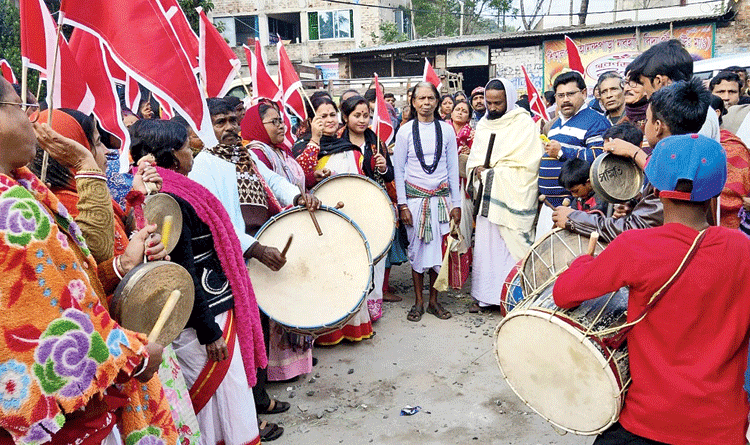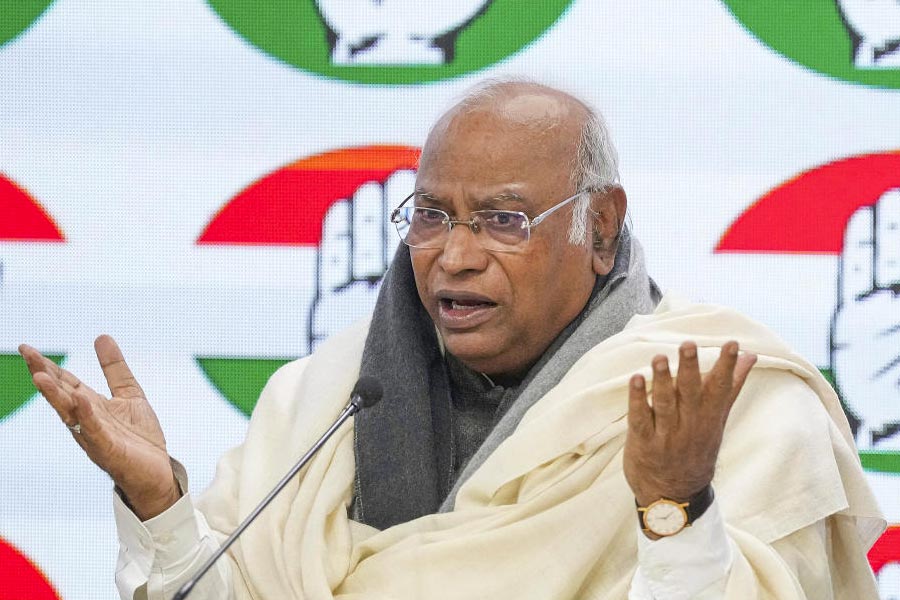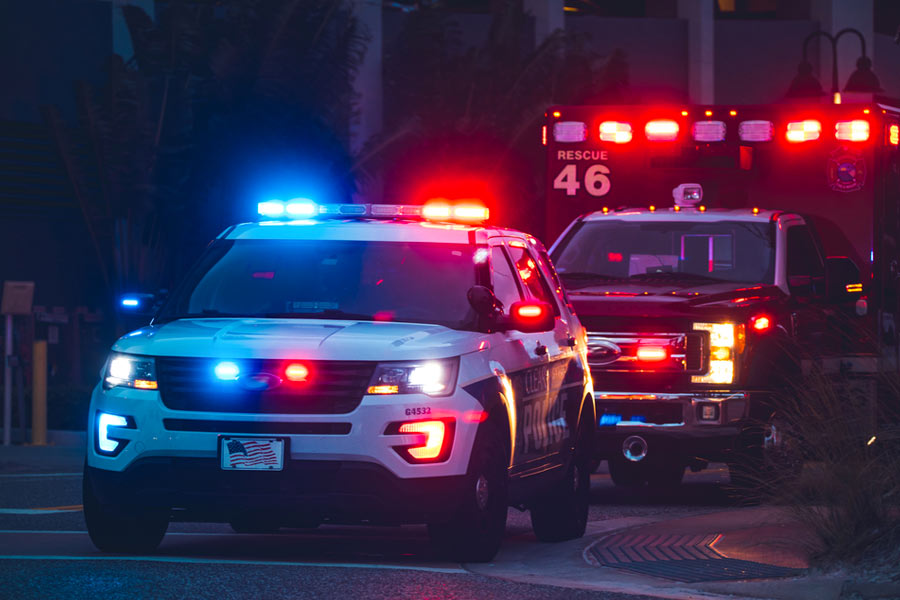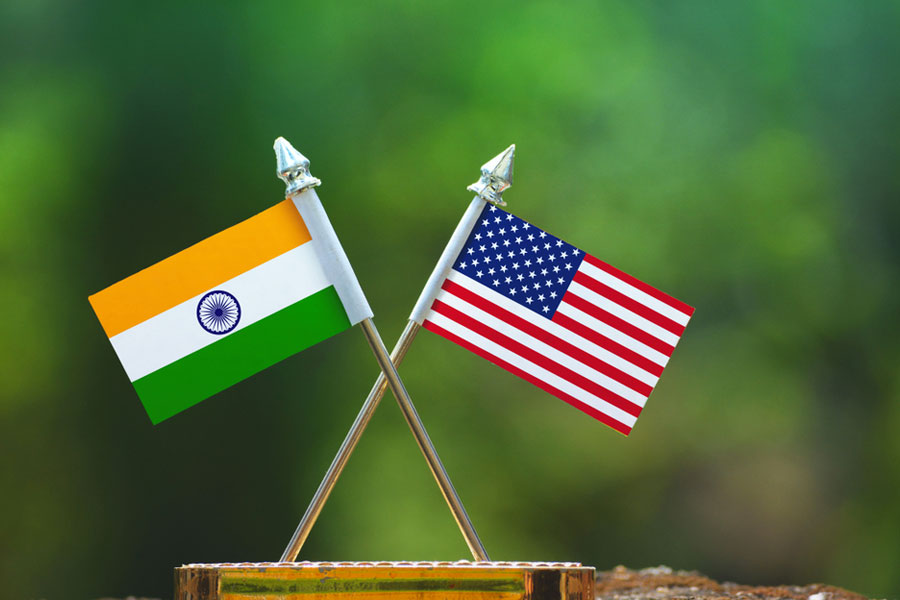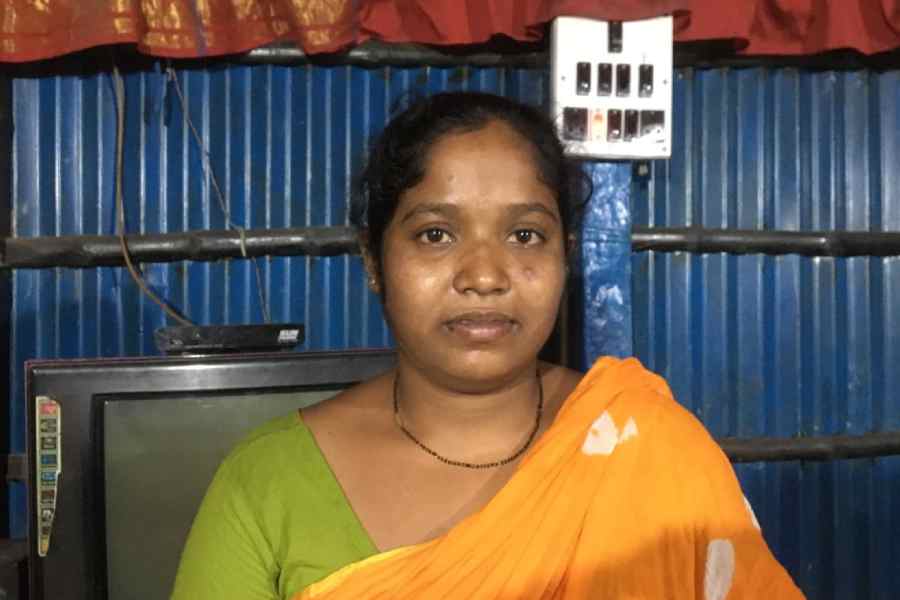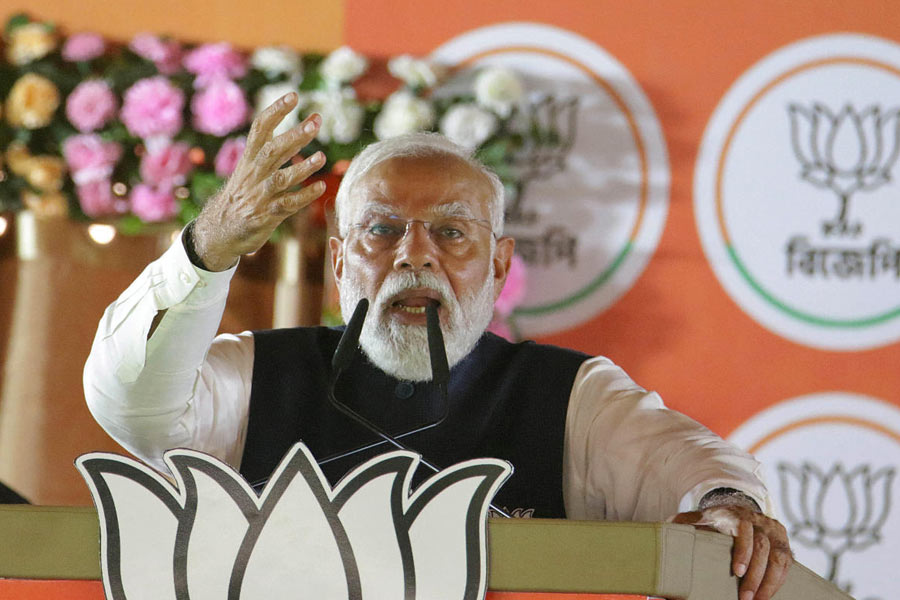The debate on the new citizenship matrix in Bengal is incomplete without Matuas, the downtrodden Namashudra community majority of whom migrated from East Pakistan.
Prime Minister Narendra Modi and Union home minister Amit Shah have been referring to the Matuas ever since protests against the Citizenship (Amendment) Act started in Bengal.
Getting citizenship has been a longstanding demand of the Matuas and the BJP’s top two have the sizeable Matua votebank in mind when they repeatedly refer to the community in defence of the CAA. Mamata also refers to the Matuas in her anti-CAA narrative.
Subhasish Chaudhuri of The Telegraph takes a closer look at the community, its past and why it has come at the centre of the debate vis-à-vis the new citizenship matrix.
The community
Matua was born as an independent sect through a religious reformation movement launched by Harichand Thakur (1812-1878), an illiterate farmer who belonged to the downtrodden Namashudra community and lived at Faridpur in erstwhile East Pakistan (Bangladesh), and his son Guruchand Thakur (1846-1937). Harichand, who is god to the Matuas, had raised his voice against Brahminism.
He formed the Matua Mahasangha and was vocal against any discrimination between men and women, as well as Muslims and other religious sects and communities. The duo drew huge followers, who joined the Matua movement.
After 1947, a large number of Matuas migrated to Bengal.
Problems
The Thakur family came to Bengal during 1946. However their followers, who mainly belonged to the downtrodden farming community, entered India ‘illegally’ after 1971. Over time, most of them have got their names in the voters’ list in India and bought land to settle down permanently. Members of their next generation are in government jobs. But the 2003 edition of the NRC has tagged them as refugees and ‘infiltrators’.
Though they can vote in India, they are often denied caste certificates, and passports. Their voters’ cards do not confirm their citizenship. Police often harass them and they are often arrested as Bangladeshis under the Foreigners’ Act. Members of the sect said the lack of citizenship documents made them live in constant fear.
BJP narrative
The BJP leadership considers Matuas as voters, but not Indian citizens. The party does not accept their voters’ card as proof of citizenship. It says the amended citizenship act will give them the tag of Indian citizens.
To be considered as citizens the act offers a cut-off date of December 31, 2014, for submission of application by religiously persecuted refugees.
However, to be eligible as citizens, the Matuas have to prove that they had been religiously persecuted in their earlier place of residence. They will also need to prove that they came into India before December 31, 2014. As these two riders have made the Matuas uncomfortable, the BJP leaders claim that they will not have to submit any documents.
Trinamul version
Trinamul leaders claim that the prolonged stay of Matuas in India automatically ensured them citizenship. Chief minister Mamata Banerjee reiterated that as Matuas were enrolled in the voter’s list it was enough to establish their citizenship. She said in addition, they have documents such as Aadhaar, driving licences, PAN card and land documents in the colonies they had been rehabilitated after entering India.
Political significance
The huge following of the sect drew the attention of political parties towards it. Harichand’s grandson Pramathanath Thakur was the first to take the political plunge by joining the Congress and was elected to the state Assembly from Nadia’s Hanshkhali in 1962.
After Pramathanath’s death, his wife Binapani Devi or Baroma “dictated” the political preference of the community. During the last days of Baroma, differences over which political party to back surfaced in her family. One of the faction is led by Santanu Thakur, grandson of Pramathanath and Binapani, while their daughter-in-law Mamatabala Thakur heads the other group.
The split happened with both the Trinamul and the BJP aggressively courting the Matuas because of the community’s history of en-masse voting for one political party.
The Matuas, which is a approximately 50lakh strong community, decides the fates of candidates in at least 48 Assembly segments in the districts of Nadia, North and South 24-Parganas, North Dinajpur, and Jalpaiguri and at least six Parliamentary constituencies (Ranaghat, Bongaon, Barasat, Basirhat, Barrackpore, and Joynagar). This makes the community an important player in state politics.
Demand
The Matuas want a specific ‘document’ to prove their citizenship. They also demand an unconditional cut-off date of December 31, 2019, to be eligible to apply for citizenship. Sukriti Ranjan Biswas, 66, vice-president of Sarba Bharatiya Matua Mahasangha, said: “The CM has been trying to support us and said voters’ card is enough to prove citizenship. The CM, unfortunately, is not aware of the bitter reality our people regularly face. We demand unconditional citizenship for the refugees instead of repeal of CAA.”
Former Trinamul MP from Bongaon and head of Sarba Bharatiya Matua Mahasangha Mamatabala Thakur said: “Nothing except a proper citizenship certificate will solve our problems. If the Centre is really concerned about the Matuas, it should immediately withdraw all the riders for getting citizenship. But unfortunately, the BJP is misleading our people for political gains.”

